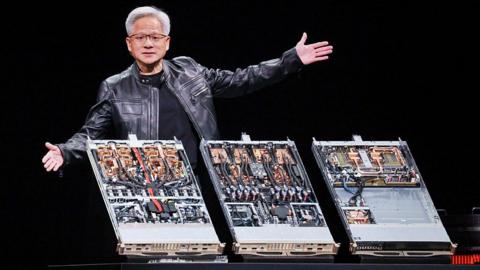Mr Huang's comments reflect an ongoing debate in the US over how to balance global business interests with economic and national security concerns, against a backdrop of tensions with China.
Trump has spearheaded sweeping trade tariffs, despite objections from business groups.
But he has taken a more mixed approach to the tech industry, from which he drew critical support during last year's re-election campaign.
The decision to drop the most expansive Biden-era rule helped facilitate AI deals between firms such as Nvidia and countries including Saudi Arabia, which was announced during Trump's tour of the Middle East last week.
But the White House has tightened restrictions in other ways, barring US firms from sales of advanced technology to dozens of new companies, mostly from China.
Last month, the Commerce Department said it would impose new licensing requirements for exports of certain Nvidia chips.
It has said it intends to replace the Biden-era restrictions with its own approach.
It also recently issued an alert to US firms, warning them that using Huawei chips risked violating US rules.
Beijing has since pushed back against that move, accusing the US of undermining the framework agreed during trade talks in Switzerland earlier this month.
